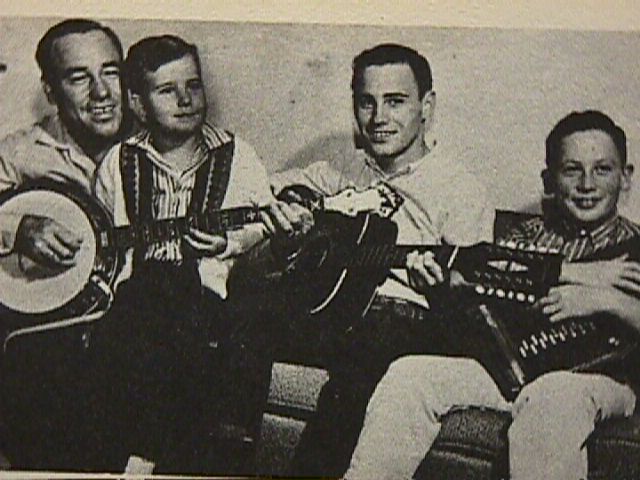Legendary bluegrass banjo player, Earl Scruggs, died Wednesday at age 88 in a Nashville hospital. According to his sons, Scruggs died of natural causes. He was the last of the bluegrass pioneers.
Scruggs’ influence on not only bluegrass and country but all of modern music is extraordinary. He pioneered three-finger, “Scruggs style” picking, an innovation which broadly increased the range, utility and melodic possibilities of the five string banjo, an instrument that had previously been used only for rhythm and occasionally as a relatively imprecise lead instrument. Scruggs’s high-speed and tautly metric playing energized audiences and could be readily picked up by the still rudimentary microphones of his early years, thereby insuring that Scruggs’s runs and leads were heard and enjoyed as banjo music had never been heard before by large concert audiences, radio audiences, and on recordings.
Like most bluegrass players of the mid-20th century, Scruggs began his career with Bill Monroe and his Bluegrass Boys, with Scruggs joining in 1945. Monroe was the father of bluegrass music and while Scruggs and his guitarist friend Lester Flatt were in Monroe’s band from 1945 – 1948, the iconic bluegrass band instrumentation became finalized: mandolin, banjo, guitar, fiddle and stand up bass. Scruggs and Flatt would eventually leave Monroe and strike out on their own as Flatt and Scruggs, ultimately eclipsing Monroe’s fame. Flatt and Scruggs are best remembered for their hits, “Foggy Mountain Breakdown” and “The Ballad of Jed Clampett,” which was the theme to the 1960s television program, The Beverly Hillbillies.
Following the breakup of Flatt and Scruggs in 1969, Scruggs went on to a solo career, often performing with his sons and experimenting with musical genres beyond bluegrass.
Earl Scruggs brought me to country music. As a teen, I had no use for the country or bluegrass genres. I was a rocker then. But the project he launched with the Nitty Gritty Dirt Band in the early 1970s — Will the Circle Be Unbroken — turned me around, and opened an epiphany into the deep, rich vein that country, bluegrass and mountain music had to offer modern musicians. The reason all those veteran Grand Ole Opry performers signed onto the “Circle Be Unbroken” project was because they heard Earl was doing it — and if Earl was on board, they were too. RIP, Earl. You turned my head around and made me appreciate a genre of music I’d previously ignored.
Here’s the Earl Scruggs Wikipedia page and EarlScruggs.com.
http://www.youtube.com/watch?v=TaiyW_UDuG0
http://youtu.be/A51yM6fjnAE



